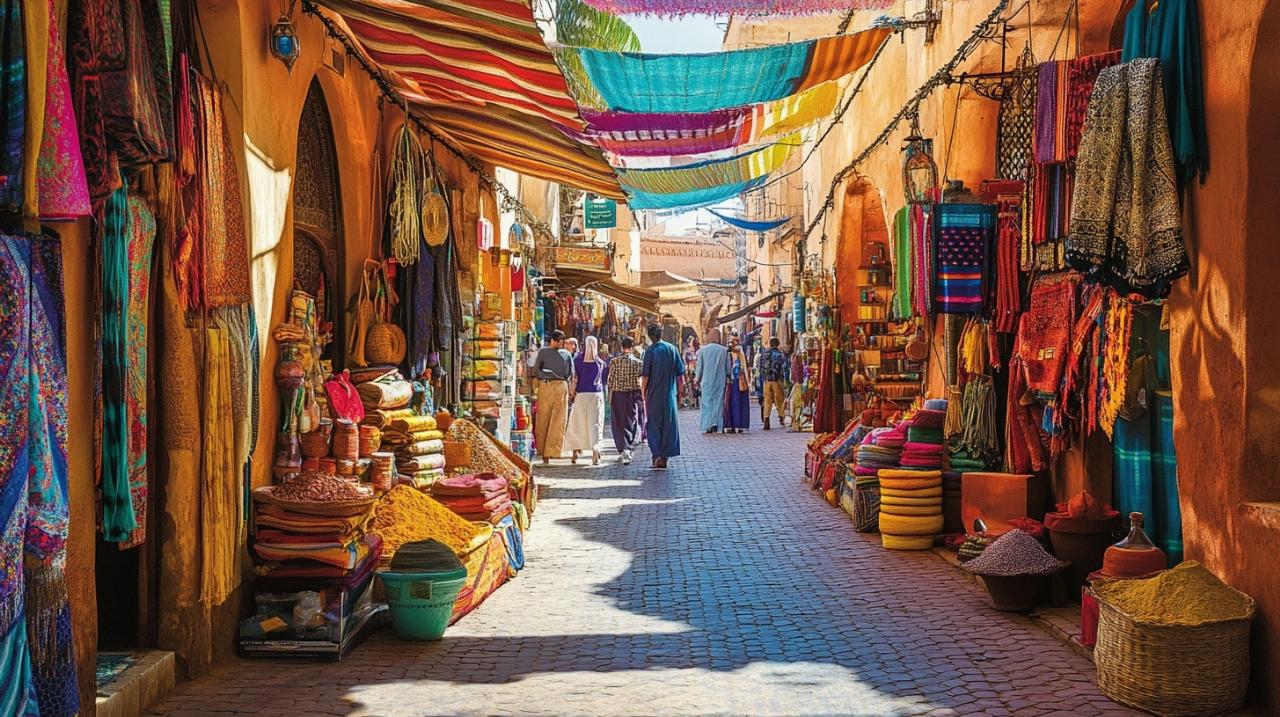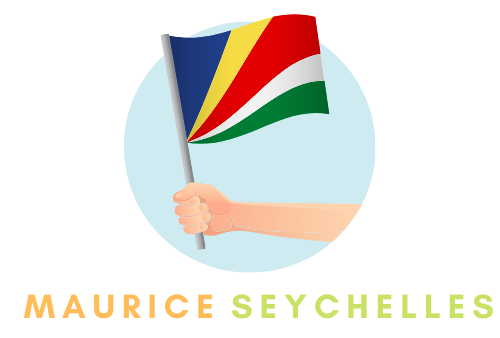Moving to a new country can be both thrilling and daunting. Morocco, with its rich tapestry of culture, stunning landscapes, and vibrant lifestyle, has become an increasingly popular destination for expats. Whether you're relocating for work, retirement, or simply seeking adventure, this comprehensive guide will help you navigate the essentials of settling in this North African gem.
Sorting your paperwork and legalities
Before packing your bags, understanding the bureaucratic requirements is crucial for a smooth transition to Moroccan life. Taking the time to get your documentation sorted properly will save you countless headaches down the road.
Visa applications and residency requirements
For British citizens and many Western nationals, Morocco allows a 90-day stay without a visa. However, if you're planning to stay longer, you'll need to apply for a residence permit (carte sejour). The application process involves gathering various documents including passport photos, a criminal background check, and proof of financial stability. To learn more about the specific requirements, consulting the Moroccan embassy in your home country is advisable. While waiting for your official permit, which typically takes 2-4 months to process, you'll receive a temporary 3-month permit.
Setting up banking and essential services
Opening a Moroccan bank account is relatively straightforward but requires identification, proof of residence, and income verification. Most banks charge monthly administration fees averaging around 15 MAD (£1.20). For utilities, you'll need to register with the local municipality. Internet service starts at approximately 419 MAD (£34) per month, while a 12kg gas canister for cooking costs about 50 MAD (£4). Remember that many services operate on 'Mediterranean Time' – a notably more relaxed pace than you might be accustomed to in the UK.
Finding your perfect moroccan home
Housing options in Morocco vary widely, from traditional riads in ancient medinas to modern apartments in newly developed areas. Your choice will significantly impact your daily lifestyle and integration into local culture.
Comparing different neighbourhoods and housing styles
Popular expat destinations include Casablanca, Rabat, Marrakesh, Fes, and Tangier, each offering distinct atmospheres. Casablanca provides a cosmopolitan vibe with international amenities, while Marrakesh offers rich cultural immersion. Rabat, as the capital, offers diplomatic communities and a somewhat quieter pace. Coastal towns like Essaouira attract those seeking a more laid-back lifestyle. Take time to explore different areas before committing, as each neighbourhood has its unique character, advantages, and challenges.
Negotiating rentals and understanding property contracts
Finding accommodation through word-of-mouth often yields better results than online searches, which frequently target international renters at premium prices. City centre one-bedroom apartments range from 7,000 MAD to 25,000 MAD monthly (£575-£2,050). When reviewing contracts, consider factors like utility arrangements, maintenance responsibilities, and deposit terms. Having a Moroccan friend or professional translator assist with negotiations can help secure favourable terms and avoid misunderstandings.
Managing your finances in morocco
Understanding the cost of living and financial systems in Morocco will help you budget effectively and make the most of your resources in your new home.
Budgeting for Daily Expenses and Regional Price Variations
Morocco offers an affordable lifestyle compared to most Western countries. Street food sandwiches cost around £1.60, while restaurant meals can range from £4-£20 depending on the establishment. Fresh produce from markets is particularly economical. Housing typically represents the largest expense, with significant price variations between regions. Tourist areas command premium prices, while outlying neighbourhoods offer better value. Bear in mind that foreigners may sometimes face higher prices than locals, so developing bargaining skills is beneficial for daily shopping.
Tax considerations and money transfer options
As a habitual resident, you may be liable for Moroccan taxation on worldwide income, with rates potentially reaching 40%. Consulting with a tax professional familiar with both Moroccan and your home country's regulations is essential to avoid double taxation. For transferring money, international banks, specialised services like Wise, and traditional wire transfers are all viable options, though fees and exchange rates vary considerably. Establishing both a local and international banking presence provides the most flexibility for managing finances across borders.
Navigating moroccan culture and customs
Understanding and respecting local customs will significantly enhance your experience and integration into Moroccan society, helping you build meaningful connections with locals.
Religious etiquette and festival awareness
Islam plays a central role in Moroccan daily life. During Ramadan, be mindful that most Muslims fast from sunrise to sunset, and public eating, drinking, or smoking during daylight hours may be viewed as disrespectful. Many businesses close for Friday afternoon prayers and operate on reduced hours during religious holidays. Modest dress is appreciated, particularly when visiting religious sites, where women should cover shoulders and knees, and men should avoid shorts. Removing shoes before entering homes and mosques is customary and shows proper respect.
Social norms and building local relationships
Moroccans generally value formal greetings and personal connections. Take time for pleasantries before discussing business or practical matters. When invited to a Moroccan home, bringing a small gift such as pastries, fruit, or chocolates is appreciated. Personal space concepts differ from Western norms, with closer physical proximity during conversations being common. Accepting invitations from locals demonstrates openness and provides authentic cultural experiences. While Moroccans are generally hospitable and friendly, they also value privacy regarding certain topics, particularly family matters.
Staying healthy and safe
 Taking appropriate precautions regarding health and safety will ensure your Moroccan experience remains positive and trouble-free.
Taking appropriate precautions regarding health and safety will ensure your Moroccan experience remains positive and trouble-free.
Medical facilities and insurance options
Morocco introduced mandatory health insurance (AMO) in 2006, but most expats opt for international health coverage. Medical consultations for common illnesses cost approximately 150 MAD (£12), with specialist appointments around 300 MAD (£25). Major cities have well-equipped private hospitals and clinics, though facilities in rural areas may be limited. Having comprehensive insurance that covers evacuation in case of serious illness is advisable. Many medications are available without prescription, but bringing a supply of any regular prescriptions is recommended when first arriving.
Personal safety tips and emergency contacts
Morocco is generally considered safer than many Western cities, but normal urban precautions remain sensible. Be aware of potential scams in tourist areas of Tangiers, Casablanca, and Marrakech. Women may experience unwanted attention and should consider dressing modestly and avoiding walking alone at night in unfamiliar areas. Keep emergency contacts readily available, including your embassy's number, local police (190), and ambulance services (150). It's also wise to register with your country's embassy upon arrival to receive safety updates and assistance in case of emergencies.
Getting around morocco
Transportation options in Morocco range from modern train networks to traditional shared taxis, each offering different advantages for navigating the country.
Public transport networks and reliability
Trains connect major cities like Casablanca, Rabat, Fes, and Marrakech, offering comfortable and reasonably priced travel. The high-speed Al Boraq line has significantly reduced travel times between Casablanca and Tangier. Public buses vary in quality, with premium companies like CTM and Supratours providing reliable, air-conditioned services between cities. Within urban areas, city buses are inexpensive but often crowded and follow less predictable schedules. Many cities are developing tram systems, with Rabat and Casablanca already having operational networks.
Driving considerations and alternative travel methods
Driving in Morocco requires adjustment to local road practices, which can be more flexible regarding lane discipline and signaling than in the UK. An International Driving Permit alongside your national license is recommended. Taxis come in two varieties: petit taxis (operating within city limits) and grand taxis (for intercity travel). Petit taxis are metered and inexpensive, while grand taxis operate with fixed fares based on routes rather than meters. Ride-sharing apps have also emerged in major cities, offering another convenient option for urban travel.
Embracing moroccan cuisine
Moroccan food culture represents one of the country's greatest treasures, blending Berber, Arabic, Mediterranean, and French influences into a distinctive culinary tradition.
Must-try traditional dishes and dining etiquette
The tagine – a slow-cooked stew named after the conical clay pot it's prepared in – stands as Morocco's signature dish, available with various meat and vegetable combinations. Couscous, traditionally served on Fridays, represents another staple, often topped with vegetables and meat. Moroccan mint tea, poured from height to create a frothy top, accompanies most meals and social gatherings. When dining, it's customary to eat with the right hand if traditional shared dishes are served. Tipping around 10% in restaurants is standard practice, showing appreciation for service.
Food Shopping and Cooking Like a Local
Fresh markets (souks) offer the best quality produce, meat, and spices at lower prices than supermarkets. Building relationships with local vendors often leads to better quality and occasional discounts. Essential Moroccan pantry items include preserved lemons, olives, cumin, saffron, and ras el hanout spice blend. Shopping daily for fresh ingredients rather than weekly bulk-buying aligns with local practices. Consider taking a cooking class early in your stay to understand basic Moroccan techniques and ingredient combinations – skills that will enhance your daily life and provide insight into local culture.
Building your expat community
Establishing connections with both fellow expatriates and locals creates a support system and enriches your Moroccan experience with diverse perspectives.
Finding social groups and networking opportunities
Joining Facebook groups dedicated to expats in Morocco provides practical advice and social connections before and after arrival. Organizations like the Intercultural Thaqafat Association organize regular events bringing together expatriates and locals. Language exchange meetups offer opportunities to improve your Arabic or French while meeting new people. International schools, cultural centers, and business associations also function as networking hubs for newcomers. The expat community in Morocco is diverse and typically welcoming, with Europeans, North Americans, and people from across Africa and the Middle East representing the major groups.
Balancing expat connections with cultural integration
While expat communities provide comfort and practical support, developing relationships with Moroccan neighbors and colleagues offers deeper cultural insights and more authentic experiences. Accepting invitations to local homes and events demonstrates openness and respect for Moroccan hospitality. Learning basic Darija (Moroccan Arabic) or French phrases facilitates daily interactions and shows commitment to integration. Finding activities that bring together both expatriates and locals, such as cooking classes, hiking groups, or arts events, creates balanced social circles that enhance your understanding of your new home while providing the comfort of shared experiences with those navigating similar transitions.
